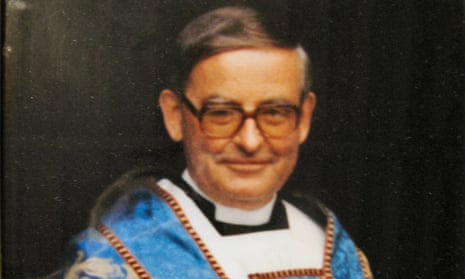My colleague Hugh Prosser, who has died aged 84, was an Anglican priest, headteacher and friend of liberation politicians in Zimbabwe.
Born in Alert Bay, British Columbia, to a missionary couple, Mary (nee Ofield) and Keith Prosser, he won a scholarship to Cambridge to read history. Ordained in 1957, he served his curacy at All Saints, Wigan, and in 1962 joined the Community of the Resurrection at Mirfield in West Yorkshire, where he took the name Hugh Keble. Two years later, Mirfield sent him to teach in Rhodesia.
Close to the Mozambique border and dominated by a huge brick church, St Augustine’s Mission, Penhalonga, had the country’s first secondary school for Africans, the first to accept girls, and the first to teach Cambridge board A-levels. Hugh became principal of the school in 1970. He was also the priest, choirmaster, architect, financial director, administrator, and teacher of history, divinity and swimming.
A former pupil, Gibson Bhunu, now a civil engineer, recalled: “Father Prosser knew all 400 of his students by name and wrote constructive comments on their performance and character every term.” He supported universal education and quietly paid the fees of poor students. A registered conscientious objector who was excused national service, he refused to inflict corporal punishment, substituting gardening or cleaning.
After Ian Smith’s 1965 unilateral declaration of independence escalated into civil war, Prosser, the only remaining European at the mission, walked a tightrope between the Rhodesian security forces who came to the school by day to look for “communist terrorists” and the Zimbabwe African National Liberation Army (Zanla) freedom fighters who held political meetings in the same building at night.
By staying on, he risked both life imprisonment and being shot in his bed, but he managed to keep the school open. One evening in 1979, the security forces arrived unexpectedly during a school film show, and, in front of the students, shot dead the guerrilla Tendai Pfepferere, a former student who had returned to the school for the screening. Hugh cleaned the blood from the bullet-riddled floor and insisted on conducting a proper burial. By the time independence came in 1980, one third of the students had left to join Zanla. Hugh welcomed back to the school everyone who applied, whatever their age.
In 1990, Zimbabwean church politics forced him to return to Britain where he became parish priest of Pocklington, Yorkshire, until his retirement to Poundbury, Dorset, at the age of 69. His legacy is the education of more than 3,000 Zimbabweans, now working all over the world as engineers, accountants, writers, doctors and professors.
